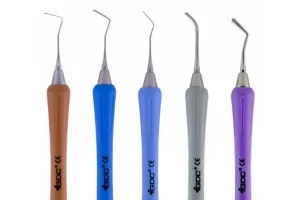Dental health insurance is important to help pay for dental care. Some types of insurance cover more than just regular checkups, including preventative services, emergency services, and more. You may want to look into dental savings plans to help cover your dental costs. These plans often have no pre-existing condition exclusions and don’t require waiting periods. You can also use a marketplace to compare plans and costs.
In the United States, about 77% of the population has some type of dental coverage. Most people get this coverage through a group plan or private employer. It’s more common for high wage workers and large companies to offer dental coverage. However, dental care is not covered by Medicare, and most state Medicaid programs only cover children’s dental care.
You can purchase dental insurance for yourself or your family, and each plan has different coverage levels, monthly premiums, and coinsurance amounts. Consider how much coverage you need, how many dental services you plan to receive in a year, and whether you want coverage for preventative services or major services. You can check with state regulatory agencies for more details about each insurer. You can also check with the National Association of Insurance Commissioners (NAIC) to find out if there have been any complaints against the company.
Dental health insurance plans usually come in two types: PPO and DHMO. PPO plans have more extensive network benefits and may be better overall, but they are more expensive than DHMO plans. DHMO plans, on the other hand, restrict you to dentists in the plan’s network. If you choose to visit a dentist outside of your network, your dentist will charge a higher copayment than a DHMO plan.
Ameritas dental insurance policies compare favorably to similar plans from other providers. In Ameritas’ most affordable plan, you’ll pay only 15% of the total cost. Most other providers cap annual payouts at $1,000 or more. Fortunately, Ameritas dental insurance plans cover over 350 dental procedures. The monthly premium rate for each plan varies, as does the dollar amount you can expect to receive for services covered. The plan also does not have deductibles, annual maximum limits, or network requirements.
Dental health insurance benefits are calculated annually and renew on the first of January. Any unused benefits don’t carry over to the next year. If you have questions, ask your agent or dentist at Park Slope Dental Arts in Brooklyn. A dental insurance agent will be happy to help. However, please keep in mind that this information is intended as a general guide only. It should never be used as a substitute for medical advice.
Dental health insurance is a great way to protect your health and prevent oral problems. Dental problems can be painful and expensive to fix. Thankfully, there are affordable plans available nationwide. By choosing a quality dental health insurance plan, you can ensure your smile is healthy for years to come.





